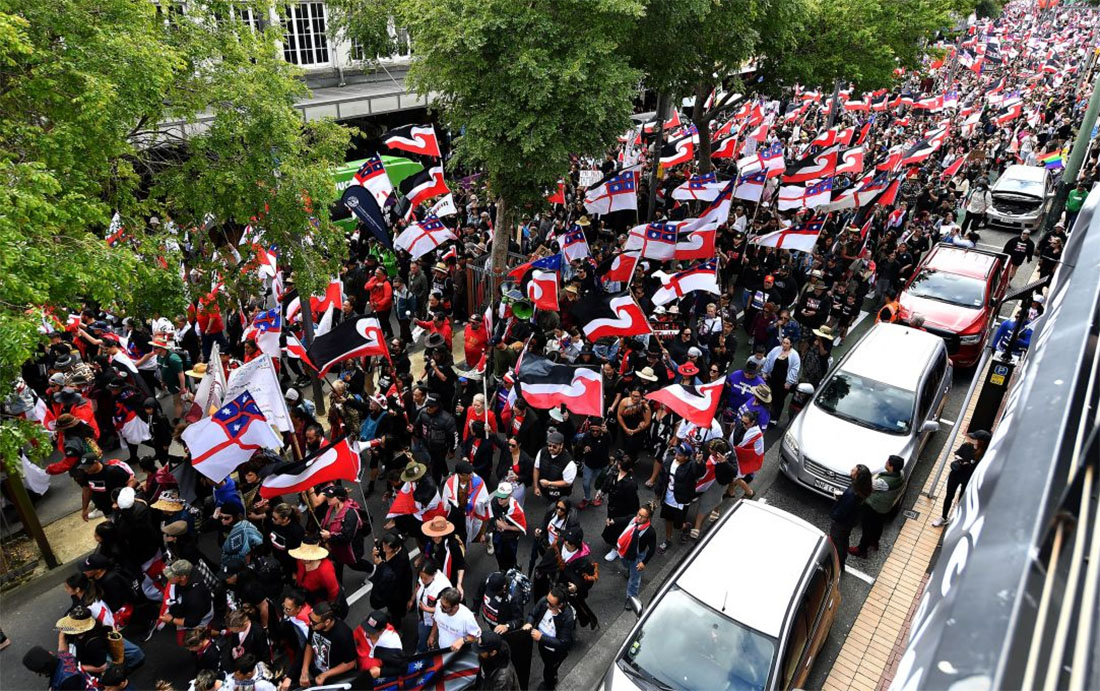
Photo Credit: Getty Images
Tens of thousands of people gathered at New Zealand's parliament in Wellington on Tuesday, marking the culmination of a nine-day protest against the Treaty Principles Bill, which critics argue undermines the rights of Māori people.
The march, known as *Hīkoi mō te Tiriti*, began in the far north of New Zealand and crossed the North Island before reaching the capital. Around 42,000 protesters, many waving flags and wearing traditional Māori clothing, converged outside parliament, demanding the bill's rejection.
The Treaty Principles Bill seeks to redefine the Treaty of Waitangi, an 1840 agreement between the British Crown and Māori chiefs, which enshrines co-governance principles. Critics fear the bill dilutes Māori rights and disrupts the treaty's long-established interpretations. Protests have reignited debates on Indigenous rights under New Zealand's most right-leaning government in years.
David Seymour, leader of the ACT Party and bill sponsor, contends the legislation seeks clarity by applying treaty principles equally to all New Zealanders. Opponents, however, argue this diminishes Māori protections and rights. When Seymour briefly met the crowd outside parliament, chants of "Kill the bill" filled the air.
While the bill is unlikely to pass, the march symbolizes a generational stand for Māori rights. Protest leader Eru Kapa-Kingi declared, "Te Tiriti is forever," underscoring the enduring significance of the Treaty of Waitangi.
















